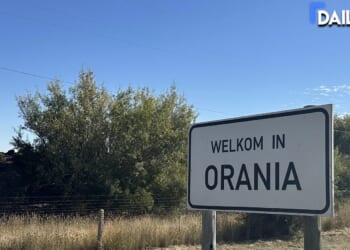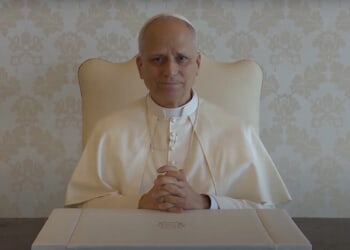Almost a year ago, we ran an article with the headline ‘Yesterday may yet come to be looked back on as the day the Starmer Government failed‘. The occasion was Sir Keir Starmer’s first King’s Speech, which had lived down to Labour’s election manifesto by managing to pull in lots of contradictory directions whilst at the same time having too little in it.
The big problem, I argued then, was thus:
“[W]e can see the first traceries of what could be tomorrow’s cracks: the hurried announcement of a task force to buy off backbenchers over the two-child limit; a simmering mutiny over an over-mighty chief of staff.
“Even if the Prime Minister and Chancellor grow wiser in office and realise stronger medicine is needed, they may not be able to deliver it, especially without having got their MPs buy-in via the election manifesto. This was likely their best chance to show us what they’ve got. It was not enough.”
It says something about the extraordinary pace at which this government is speed-running the normal political life-cycle that, only eleven months in, we are already on the second dastardly Rasputin being blamed by Labour MPs for leading their leader astray. If only the Czar knew what his advisers were putting in his speeches…
But it is on public spending that the Prime Minister is, as House of Cards put it, “in the trap and screaming”. Last year looks increasingly to have been his one chance to make any serious reductions to public spending, and he missed it.
Even a year ago, it was quite plain why the government was heading for trouble later in the parliament. Not only had it not got its MPs to commit themselves to anything painful in its manifesto, but it had also returned far too many MPs to be able to buy most of them off with the prospect of a front-bench position, and very many of them had slender majorities.
Add all that together with what Rachel Reeves claimed were her whole-parliament spending envelope – which inverted the political logic of austerity by front-loading all the spending and pledging two very lean years ahead of a general election – and the government’s options boiled down to a) growth magically resumes because the grown-ups are back in the room or b) it didn’t, and we ended up where we are now.
As is traditional at this point in the collapse of a leader’s authority, rebellious Labour MPs are still offering a rubric of loyalty. Their revolt is not a challenge to Starmer, they say, but to the unwise course foisted on him by his advisers; they obviously share his concerns about public spending, but feel there ought to have been more consultation on the Welfare Bill.
This is so much cant, of course. Thanks to the previous governmnent’s repeal of the Fixed-term Parliaments Act, we are no longer in the absurd situation whereby rebels could choose what was or was not a confidence motion; nobody, but nobody, thinks that extra consultation on welfare cuts would yield anything but more people saying they don’t want to lose money, and create pressure for even more concessions than Starmer is already making.
Regardless, the government is now structurally in serious trouble. Less than a year into office, with an enormous majority, Starmer cannot reliably secure his own legislation or deliver the measures announced by his chancellor at a fiscal event. That’s the sort of thing the bond markets are going to notice at some point.
In the short term, Reeves’ only alternative way to balance the books will be to break, for the second time in twelve months, her explicit promise not to raise taxes. But this will pose two new problems.
First, it will be much harder for the Chancellor to blame any tax rises on the previous government. The original line about discovering a “fiscal black hole” was already implausible, but she has since justified her u-turn on the Winter Fuel Allowance on the basis that Labour’s hard work fixing the economy (you mileage may very) has started to pay off. As we noted last week:
“Perhaps the Government will present the economy as a sort of sine wave, oscillating between fixed and broken as the moment requires. Or say that Mel Stride is sneaking into the Treasury and switching the economy off when no-one is looking.”
The second problem is that Labour MPs won’t like that course of treatment much better than tax cuts. As the government has already learned to its cost with its non-dom squeeze and VAT raid on private schools, there is no significant sum to be wrung painlessly from easy targets, and a domestic wealth tax is a non-starter.
No European country maintains higher levels of state spending than Britain without higher taxes on working people and middle earners, and that is where the burden of balancing the budget through tax hikes will have to fall. That is not obviously going to please any Labour MP sitting on a slender majority in a better-off, historically right-leaning constituency – especially when, as the IFS has noted, the UK is already running at historically high levels of taxation.
Moreover, simple comparisons between overall tax levels here versus European countries also risk giving a misleading impression of the political space for a higher-tax settlement, ignoring as they do variables such as different voter expectations, different costs-of-living (it is harder to be sanguine about paying more tax if your post-tax income doesn’t go very far), and state capacity (nobody likes making sacrifices for systems that visibly don’t work).
This is why, in the medium term, raising tax doesn’t actually offer Reeves an either/or alternative to cutting spending. Without controlling runaway entitlement spending, most of any extra revenue will end up not invested in capital projects which might change this country’s economic trajectory, but propping up a totally unsustainable the status quo just a little longer.
Anyway, that’s where we are one year into this parliament. It’s anyone’s guess where we’ll be by year four.




![Man Arrested After Screaming at Senators During Big Beautiful Bill Debate [WATCH]](https://www.right2024.com/wp-content/uploads/2025/06/Man-Arrested-After-Screaming-at-Senators-During-Big-Beautiful-Bill-350x250.jpg)












